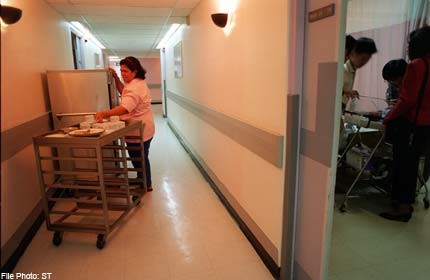Uninsured US hospital patients discharged sooner


Patients in the United States who don't have insurance tend to be discharged from hospital sooner than those with coverage, regardless of their medical condition, researchers said.
The number of uninsured people in the United States stood at 50 million last year, inching up slightly from the year before, and researchers at the University of South Carolina at Charleston said their findings suggested that financial factors may play a role in the length of hospital stays.
Looking at records for nearly 850,000 adults discharged from US hospitals between 2003 and 2007, the researchers found that uninsured patients stayed in hospital just under 2.8 days, on average, for potentially preventable hospitalizations - those for worsening of chronic health problems such as asthma or diabetes, for example.
That compared with 2.9 days for patients with insurance and 3.2 days for patients with Medicaid, the government-funded health program for the poor, according to findings published in the Annals of Family Medicine.
"Does this represent something? I think it does," said study leader Arch Mainous, adding that the gap sounded small but was meaningful.
The difference in the length of hospital stays was apparent even though the researchers accounted for age, race, sex and the number of medical conditions patients had.
If anything, Mainous said, it would make sense for uninsured patients to be in worse shape when they arrived at the hospital for a chronic health issue, since they would be less likely to have routine healthcare to manage the problem.
"So why would they have a shorter hospital stay?" he said.
In addition, uninsured patients also had shorter stays when they were treated for problems not related to everyday healthcare, such as a traumatic injury.
But Mainous noted that it wasn't possible to tell whether the shorter stays were necessarily bad and that there had been no way to tell how patients fared after their discharges, including whether they faced a greater risk of readmission.
Medicaid patients had the longest stays, so the shorter hospital stays aren't just connected to patients being poor, he added.
One possibility is that uninsured patients are more likely to be discharged from the hospital "prematurely." Another is that patients with insurance are sometimes kept longer than necessary since their payment is covered.
"We can't really say which it is right now," Mainous said.
The researchers excluded record from patients who left the hospital against doctors' advice, which is more common among uninsured people, so that doesn't explain the difference.
But with the numbers of uninsured rising, it will be increasingly important to find out how insurance status affects hospital stays, Mainous said.